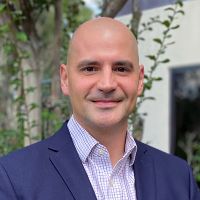The Well Church & Community
ABOUT
The WELL CHURCH INITIATIVE of Texas A&M AgriLife Extension's Family and Community Health Unit supports and edifies churches and their clergy through education and resources across the faith-placed to faith-based continuum.
While the WELL CHURCH INITIATIVE specializes in churches of various Christian traditions, we also welcome partnerships with other faith-based organizations, places of worship, non-profit organizations, healthcare, and statewide agencies who are seeking to positively impact the health and wellness of their communities across Texas.
History
Since 2010, Mark D. Faries, PhD has worked closely with clergy, clinicians, and individuals on continued education within and integration of religious beliefs and practices with health behavior—particularly healthy eating, physical activity, and disease prevention. In 2019, in cooperation with the Governor’s Frontline Childcare Task Force, Dr. Faries served as a member of a statewide Extension response team to develop a series of free online trainings for child care providers and parents who were either in need of, or who were providing care for, children of essential employees throughout the COVID-19 pandemic.
Very specific and informative health recommendations were provided for childcare centers. However, when such recommendations were eventually released for faith communities, they were quickly perceived by clergy and faith leaders, as too general, disconnected from local needs, and lacking suggestions to meet many specific church needs. Dr. Faries responded with preparing more specific suggestions, and through many discussions, uncovered a tremendous gap in a trusted resource to respond to faith communities’ unique questions and educational needs toward improving health and wellness (both inside and outside the church).
The WELL CHURCH INITIATIVE was formed in response to these concerns: (1) to give voice to clergy and faith communities’ specific needs, questions, and concerns, and (2) to provide a range of health extension education and resources that can be used for personal choice in health behavior within their religious culture, values, and beliefs.
Initial financial support was provided by a United States Department of Agriculture (USDA) Rural Health and Safety Education grant to offer a Well Church & Community Conference on timely health topics for rural churches and their communities, and pilot the the Well Church Check-up to help bring awareness to churches’ own physical, mental, and spiritual wellness—including gaps in needs that could be met by local County Extension Agents and extension programming. Current collaboration includes both federal partners (e.g., USDA Center for Faith-based and Neighborhood Partnerships) and state partners (e.g., Texas Department of State Health Services), as well as supportive funding to enhance educational resources—such as recent funding from the Ardmore Institute of Health to develop and expand our Clergy Health Education Program.
Extension and the Local Church
“Our objective in extension work is to help people reach higher levels of living—
physically, mentally, and spiritually." [1]
This quote by Mildred Horton at the 1942 Texas Annual State Extension Conference expresses the importance and positive influence of religion and health—now supported with decades of scientific research [2]. Her words echo the Extension Worker's Creed, "I believe in people, their hopes, their aspirations, and their faith..." In addition, the Extension Service has long recognized the important role the local church, especially in rural areas, in community life and well-being.
“The rural church, which is a living force in the community,
and which spiritualizes rural life, plays a great role in
maintaining the richest community life.” [3]
The WELL CHURCH INITIATIVE of Texas A&M AgriLife Extension's Family and Community Health Unit maintains this tradition and trusted relationship with faith communities. Since the inception the Smith-Lever Act (approved May 8, 1914), Cooperative Extension has been deemed the “greatest ally” to churches and other faith-based ministries, particularly in rural areas—“Each on reenforces the other. And where this is done, defeat is turned to victory.” [4]
In 1929, H.W. Hochbaum highlighted two methods for work between Extension and local churches—of which the WELL CHURCH INITIATIVE still follows in aim to improve the health and wellbeing of church and community. [3]
Church
The church outlines its own improvements, educational programs, and resources that will further health-related efforts and ministries internal to the church and its congregations.
Community
The church can also give its interest and support to local extension work within surrounding community—such as, lending leadership to health efforts, and offering use of church building and grounds for health-related activities and education.
---
- Bliss et al., 1952. The Spirit and Philosophy of Extension Work. (pg. 172)
- VanderWeele, T. J. (2017). Religion and health: A synthesis. In M. J. Balboni & J. R. Peteet (Eds.), Spirituality and religion within the culture of medicine: From evidence to practice (pp. 357–401). Oxford University Press.
- Hochbaum, H. W. (1929). The rural church and cooperative extension work. United States Department of Agricutlure, Circular No. 57.
- Dawson, M. (1922). The rural church. Connecticut Agriculture College Extension Bulletin, 54, p. 12
Faith-Placed to Faith-Based
The WELL CHURCH INITIATIVE utilizes a common continuum to guide the development and implementation of extension education and resources.
Faith-Placed
On one end of the continuum are faith-placed approaches, which represent those with no religious/spiritual (R/S) components or perspectives, and are usually developed by health professionals outside of a faith community. So, while faith perspectives and practices are active within the faith community where the health program or initiative is placed, these perspectives and practices are not incorporated. Examples include:
- Screening or immunization opportunities in a church parking lot
- Food pantries on the church grounds
- Health education programs utilizing a room, kitchen, or activity space at the church.
Faith-Based
On the other end of the continuum are faith-based approaches, which represent various level of inclusion of R/S sensitive components and perspectives. Faith-based approaches recognize the important impact of R/S beliefs and values that influence individuals’ life decisions and behaviors, including those related to health—much like modifying educational programs and resources to other cultural-sensitivities (e.g., geography, racial/ethnic). Examples include:
- Modifying a nutrition program to align with religious needs and preferences, such as expanding food choices.
- Recognizing key religious motivators behind health behavior, such as the body being viewed as God’s temple within the Christian faith.
- Providing specific information to health education to help guide personal autonomy in decision making, such sharing which vaccines contain gelatin, to help guide vaccination choice for those in a faith that does not consume animal products.
Project Team

Mikayla Cole, MPH
Mikayla oversees daily activities, including lead coordination all WCI programs, resources, and grant-funded projects.

Kristen Kordie, BS
Kristen provides coordination for WCI programs and activities. She is a graduate student biomedical engineering with interest in the impacts in health behavior across clinic, church, and community.

Tobias West
Tobias provides coordination and support for clergy health education. He is a pre-med, public health student with interest in the role of religion in healthcare, and lifestyle medicine.

Michelle L. Rawls, MPH
Michelle is a systems administrator with the Office of Data and Accountability with Texas A&M AgriLife Extension, and provides oversight of the WCI website and online programs.

Megan Pynckel, PhD
Megan is a Project Director in Family & Community Health with the Texas A&M Extension Service, and supports WCI resources for rural families, churches, and communities.

Mark D. Faries, PhD
Mark is a Professor and Extension Specialist in Behavioral Medicine, supporting WCI oversight, clergy resources, and health behavior education through the lens of ancient Christianity.